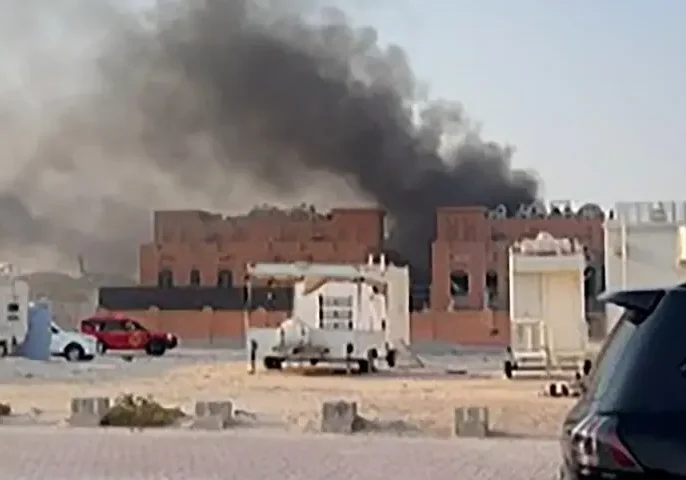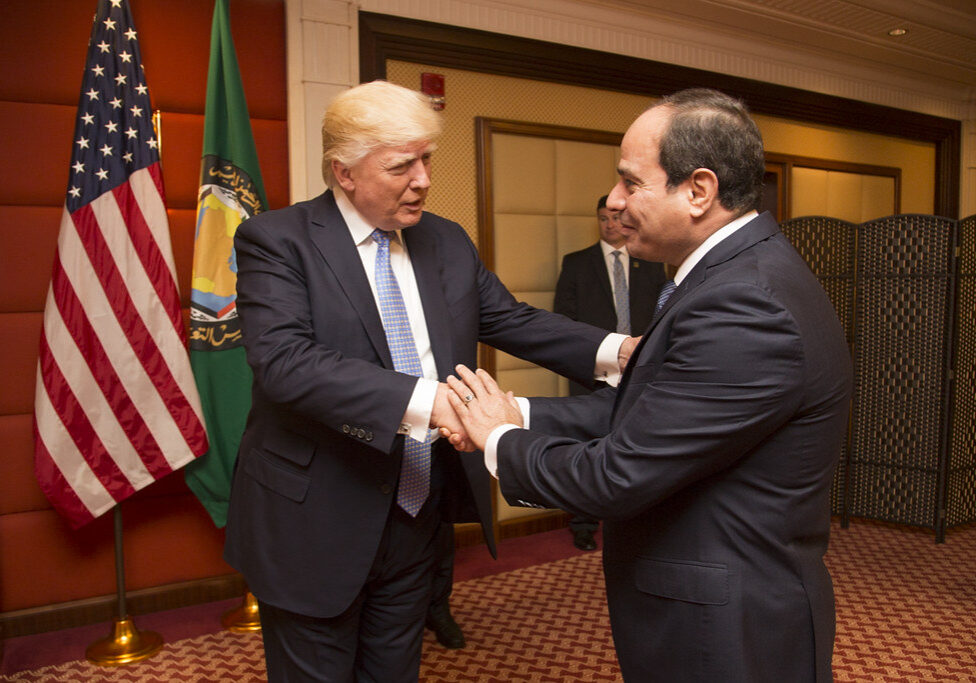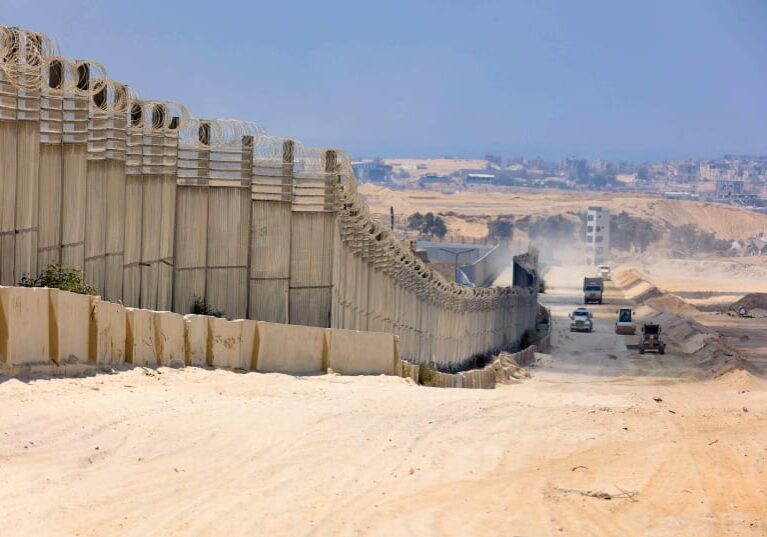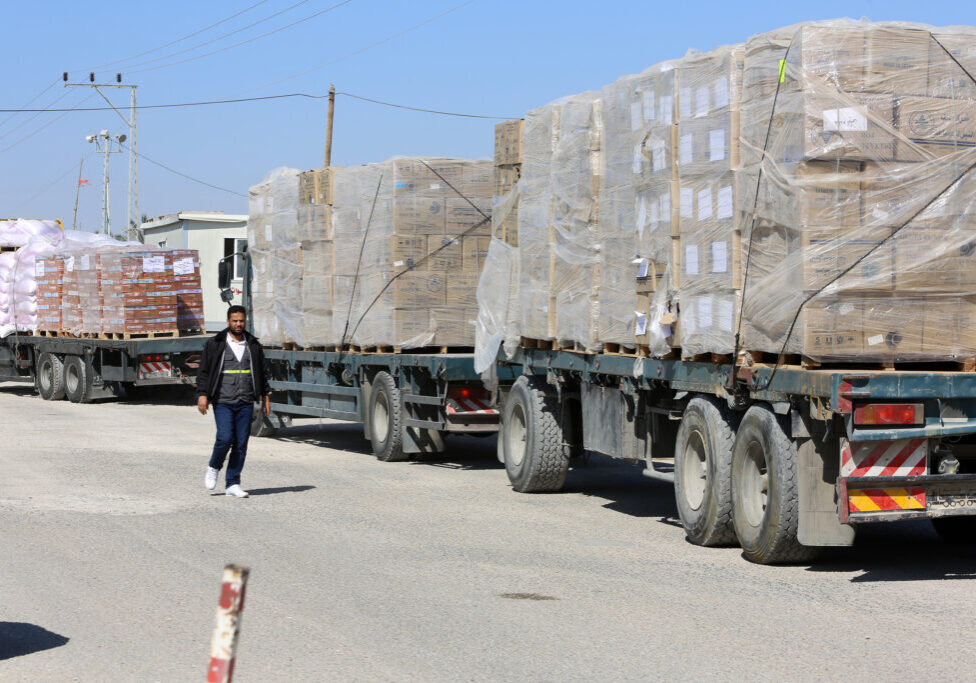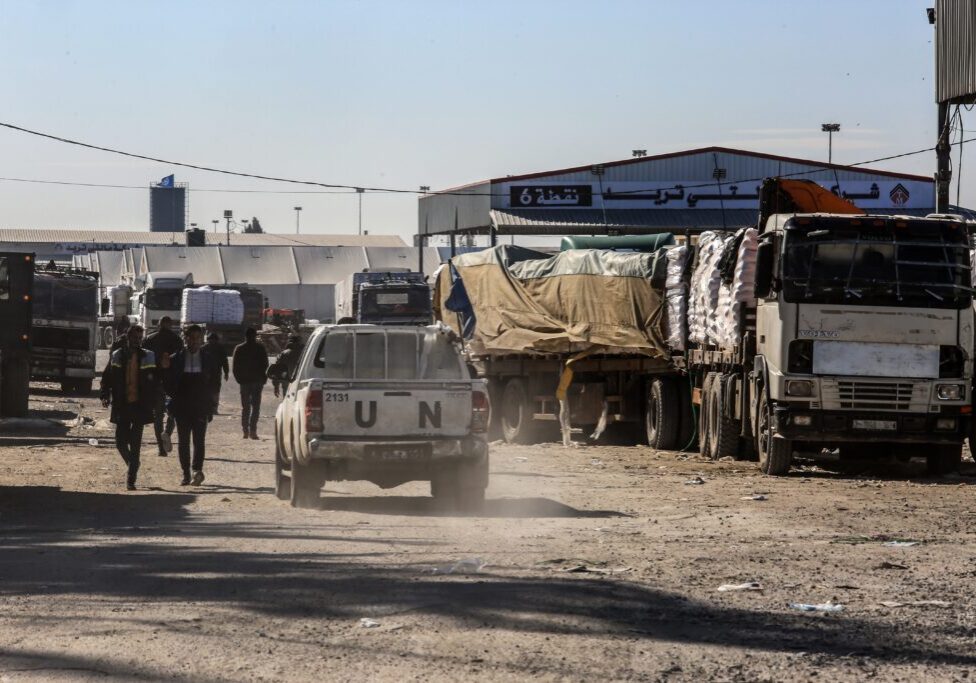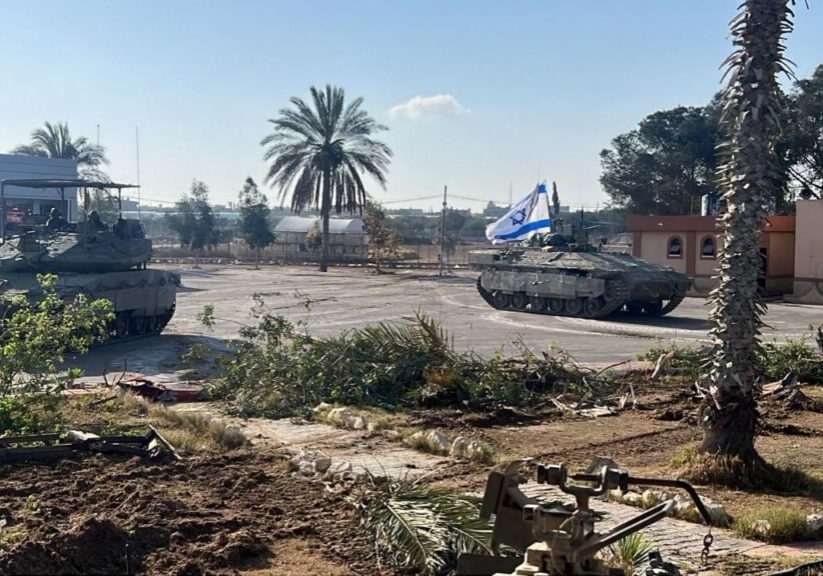Australia/Israel Review
Watching, Worrying and Hoping
Feb 28, 2011 | Amotz Asa-El
Israelis observe the regional unrest
By Amotz Asa-El
Whatever its aftermath, 2011 will be etched in the annals of autocracy alongside 1989.
At this writing, ’89’s inverted dramas – freedom in Berlin and massacre in Beijing – are unfolding simultaneously across an unprecedentedly defiant Arab world. Having seen the masses unseat the leaders of Tunisia and Egypt, Arab leaders elsewhere are strafing demonstrators with live fire, reportedly killing dozens in Bahrain and Yemen, and hundreds in Libya. Jordan, Algeria, and Morocco have also been rocked by demonstrations as decades of political corruption, social decay, and economic stagnation made the people demand the kinds of freedoms and opportunities they say exist everywhere except in the Arab world.
If there is any common denominator among this mayhem’s disparate protagonists, it is that it caught everyone off guard. From presidents, kings, generals, and spy agencies, through Westernised rioters and Islamist agitators, to neighbours from Jerusalem to Ankara and distant powers from Washington to Moscow – this was a surprise. Some expected a game-changing uprising in Teheran, but not in the Arab world, whose largest country, Egypt, seemed gripped by Hosni Mubarak as firmly as the richest country, Saudi Arabia, was by its royal family.
The initially targeted regimes proved as prepared for what awaited them as the US Navy was for Pearl Harbor. But also unprepared were the Islamists, beginning with the Muslim Brotherhood, the 83-year-old movement that has dominated Egyptian opposition since the twilight of the colonial era. To their chagrin, the uprising in Cairo was fanned not from atop mosque minarets but through online social networks where twenty somethings vented their impatience with the existing order while voicing admiration, and thirst, for freedom and prosperity, rather than piety and triumphalism. Similarly, the slogans chanted and the banners waved in Tahrir Square were scarcely religious, certainly not in the style that characterised the Iranian Revolution in 1979.
Also sleeping were all the relevant intelligence organisations, from the CIA and MI6 to the Russian SVR, not to mention the Egyptian Mukhabarat. All of them failed to detect the social fermentation that was brewing across the Middle East, and to foresee the speed with which it would proceed from cyberspace to city plazas, and the ease with which it would spread from city to city and from country to country.
This universal cluelessness was highlighted by the perplexity with which the US responded to the unfolding events as President Barack Obama publicly shifted stances, initially seeking “an orderly transition of power” and ultimately demanding Mubarak’s immediate departure.
Equally telling was the Western media’s near-complete absence from Tunisia during the first days of the upheaval that followed the self-immolation of Muhammad Bouazizi on Dec. 28. Back then, that act of desperation seemed so quixotic that a conceited President Zine el-Abidine Ben Ali went to the hospital to visit the dying vegetable peddler whose protest of the lack of jobs for university graduates like himself touched off riots from the shores of the Indian Ocean in Yemen to Morocco on the Atlantic. Surrounded by aides, guards, and court journalists, a well-tailored Ben Ali posed for photographers at the bedside of the totally burned and bandaged Bouazizi, evidently failing to imagine that 17 days on, that motionless body would bring his 23-year-old rule to its unceremonious end.
Israel was also caught off guard. Now, as it labours hard to see through the region’s shifting sands, its leaders are trying to figure out just where all this commotion leaves the Jewish state.
In the long run, the feeling in Jerusalem is that the mayhem across the Middle East will serve Israel’s interests. The precedent whereby Arab citizenries demand their leaders deliver jobs, education and personal dignity is priceless. Even if the Arabs are in for another generation or two of oppression, this memory will remain a factor and make it more difficult for Arab leaders to invest in belligerency at the expense of the people’s daily needs.
Israel had long argued that the Middle East’s root problem was not the Arab-Israeli conflict but the Arab elites’ refusal to invest their wealth in the Arab masses. This is what Israeli President Shimon Peres effectively preached when he introduced his vision of a “New Middle East” two decades ago, hoping that Israel’s agreement to establish a Palestinian state would not only pacify the region but also reinvent the pan-Arab economy.
Now the demand for economic delivery is being made by the Arab masses themselves, amid great sacrifice and in a way the whole world can no longer ignore. Even if they end up diehard anti-Israelis, the next generation of Arab leaders will have to spend most of their time treating the global economy’s most glaring black hole, namely the destitution, wrath and illiteracy that remain rampant among more than 300 million Arabs. Conversely, if Arab leaders still fail to properly feed, house, employ, educate and empower their citizenries, the people will recall how they once unseated other leaders for failing to better their lives.
The upheaval also exposed Arab autocracies’ manipulation of the Palestinian issue as a diversion. Responding to the growing unrest across the region, Libyan leader Muammar Gaddafi said he thought the Arab masses should direct their energies not at their own leaders but at Israel. The people, however, were not convinced, and the following day he was confronted by the mass demonstration in Benghazi which he greeted with live fire. Syrian President Bashar Assad’s statement several days earlier, that he did not fear popular unrest because he was “resisting Israel”, similarly highlighted Arab dictators’ use of Israel as a way to change the subject from pressing domestic issues.
Yet Israel’s most substantive potential benefits from the Arab upheaval would not be in these realms of polemics, but in terms of the conflict itself. If Arab leaders get down to the business of serious social investment and economic development, Israel will gain initially from the shrinking of Arab military spending and bellicose rhetoric this will require, and ultimately from the entrepreneurial opportunities it will create.
Unfortunately, a lot has yet to happen before any of this materialises. At this stage of the uprisings, all Israel can see is the erosion of the regional order with which it was familiar, the emergence of uncertainty and instability, and the potential for upgraded hostility, too.
Hosni Mubarak was no ally of Israel’s. He downgraded Anwar Sadat’s warm peace to the cold peace it has been for his three decades’ reign; he refused to visit Israel other than for Yitzhak Rabin’s funeral; he presided over a state-controlled media that demonised the Jewish state with vintage antisemitic imagery and stereotypes; he joined every attack on Israel at the UN, and he allowed the systematic smuggling of weapons into Gaza. Even so, Mubarak’s regime was the devil Israel knew. Diplomatic ties were upheld, Israelis vacationed in the Sinai, navigation through the Suez Canal and Tiran Straits was never doubted, Egyptian gas flowed through the Eilat-Ashkelon pipeline, and Islamism was a shared enemy.
Concern that some of this might now change emerged early, after an explosion in a metering station disrupted the flow of Egyptian natural gas to Israel. While Israel can economically handle the gas deal’s demise, even without its vast offshore gas findings last year, and despite the fact that disruption affects gas supply not only to Israel, but also to Jordan, the development was seen in Israel as a strategic warning sign. So was the passage of two Iranian war ships through the Suez Canal en route to the Syrian port of Latakia. Such a cruise had not taken place since the fall of the Shah, as Iran preferred not to mess with Mubarak, who made no secret of his intolerance for the mullahs’ threat to Egypt’s leading Middle Eastern role.
For now, Israel’s dealings with the interim government in Egypt generate an impression of business as usual. Acting President Omar Suleiman has longstanding and even warm relations with many senior politicians and generals in Israel, and has visited it many times. Military Council Head Muhammad Tantawi, is also thoroughly familiar with many in Israel, including Defence Minister Ehud Barak whom he faced on the battlefield when the two were young officers during the Yom Kippur War of 1973. And the disrupted gas supply was reportedly expected to resume by the end of February.
Still, none of this can be assumed to last as long as Egyptian politics remains in flux.
Israeli analysts are largely skeptical of the prospects of a functioning democracy emerging in Cairo anytime soon. Unimpressed with the global celebration of the rebels’ Western appearance, they point instead to the Muslim Brotherhood’s impressive showing in the 2005 parliamentary elections, when it won a fifth of the electorate and emerged as the largest opposition party, despite the Mubarak security apparatus’ heavy boot. According to these pessimists, a truly free election will bring out of the woodwork the rural masses, among whom Islamism is traditionally more firmly based, while reducing the Facebook rebels to their real, and very disappointing, size.
An alternative pessimistic scenario has a secular, freely elected government that stops short of annulling the peace accord with Israel, but makes bilateral relations even colder than they already are in order to placate a substantial Islamist political bloc. In such a case, Israel will find itself strategically squeezed between a frigid Egypt, a sour Turkey, and an altogether hostile Iran.
Israel is therefore in for a period of strategic perplexity, caution, and manoeuvring. An indication of this has been Jerusalem’s quiet agreement to allow a set number of Egyptian troops into the Sinai Desert, which according to the Camp David Accords is supposed to remain demilitarised. In the current chaos, such a gesture actually serves Israel, as the buffer area between the two states could become anarchic and a potential hotbed for terrorists.
That is also why Israeli Prime Minister Binyamin Netanyahu, while watching the broadcasts from Cairo, ordered the fence that is currently being built along the Egyptian border be completed ahead of its deadline. What was originally intended to fend off illegal migrants from sub-Saharan Africa now emerges as part of, and a monument to, a new diplomatic perplexity and strategic introversion. Middle Eastern autocracy may have been dealt severe blows, but no one knows where the Middle East conflict may next go. For now, the suspicion and mistrust that has always surrounded Israeli-Arab relations remain alive and well.
Tags: Egypt

